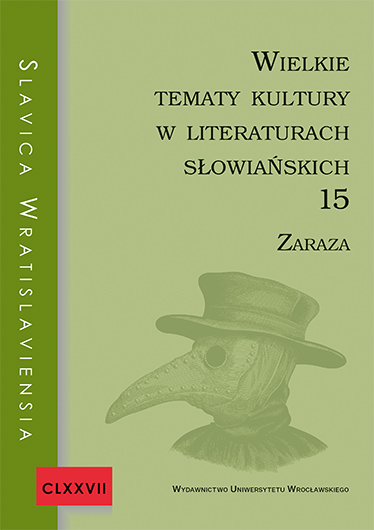Motyw zarazy w Guwernantce Vladimíra Macury
The Motif of Disease in Vladimír Macura’s “The Governess”
Author(s): Dorota Żygadło-CzopnikSubject(s): Language and Literature Studies, Sociology of Literature
Published by: Wydawnictwo Uniwersytetu Wrocławskiego
Keywords: Vladimír Macura; The Governess; František Ladislav Čelakovský; Antonie Reissová; plague; cholera epidemic; disease; Prussian Wrocław; the 1840
Summary/Abstract: The main goal of this article is a recreation of the dramatic events in Prussian Wrocław in the 1840s during the cholera epidemic in Vladimir Macura’s novel The Governess. The Czech writer’s work is not only a short history of the epidemic in Wrocław but also a psychological study of the community in the face of the threat. The chronological framework of these considerations are the years 1845–1852. During this period, poet, university teacher, and widower František Ladislav Čelakovský married Antonia (née Reiss) in Prague. Soon after the wedding, the married couple arrive in Prussian Wrocław, which will soom be overcome by the plague. The disease is a unique situation in the life of both Antonia and František and the inhabitants of Wrocław, a borderline of sorts. In Macura’s literary world, the plague functions as a metaphor for an identity crisis and, simultaneously, as a means of overcoming it, becoming a stimulus for introspection, and thus for better recognition of one’s place in the world. He accompanies the Čelakovskis during family crises, disasters and historical turning points described in the article. It is a sign of the end of a particular world accompanied by “the great dying.”
Journal: Slavica Wratislaviensia
- Issue Year: 177/2023
- Issue No: 1
- Page Range: 195-212
- Page Count: 18
- Language: Polish

